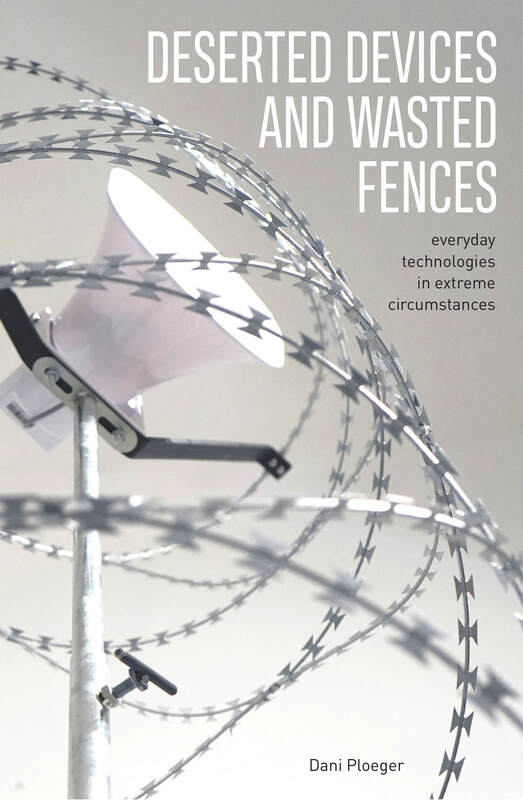|
Imprint: Triarchy Press
Published: November 2021 List Price: £12.50 Format: paperback, ePub, Kindle Extent: 120pp. ISBN: 978-1-913743-43-7 Tags: Cultural theory, cultural materialism, cultural studies of technology, waste and media archaeology, new media art, performance art, sexuality in digital culture Buy the Paperback (£12.50)
|
Deserted Devices and Wasted Fences
|
Contents
Introduction
1. Tactical Transgressions: Bashar al-Assad’s phone
2. E-Waste in Cling Film: The symbolic order of technological progress
3. Hi-Tech Everything: A report from the heart of techno-consumerism
4. Eerie Prostheses and Kinky Strap-Ons: Mori’s uncanny valley and ableist ideology
5. The Dirt Inside: Computers and the performance of dust
6. Orodha: The ultimate fetish commodity and its reversal
7. Frugal Phone / Material Medium
8. Positioning the Middle of Nowhere: GPS technology and the desert
9. Sounds of Violence: The affective tonality of high-tech warfare
10. Smart Bombs, Bulldozers and the Technology of Hidden Destruction
11. Smart Technologies and Soviet Guns: The dialectics of postdigital warfare
12. Techno-Mythology on the Border: The Pandemic Risk Society
13. Camera Surveillance and Barbed Wire
14. The Smart Fence is the Message: EU border barriers as violent media
15. The Deluxe Anti-Terrorist Barrier
16. Struggle and Expand: The Delta Works as colonial technology
Postscript: Artificial techno-myths
Acknowledgements
Bibliography
1. Tactical Transgressions: Bashar al-Assad’s phone
2. E-Waste in Cling Film: The symbolic order of technological progress
3. Hi-Tech Everything: A report from the heart of techno-consumerism
4. Eerie Prostheses and Kinky Strap-Ons: Mori’s uncanny valley and ableist ideology
5. The Dirt Inside: Computers and the performance of dust
6. Orodha: The ultimate fetish commodity and its reversal
7. Frugal Phone / Material Medium
8. Positioning the Middle of Nowhere: GPS technology and the desert
9. Sounds of Violence: The affective tonality of high-tech warfare
10. Smart Bombs, Bulldozers and the Technology of Hidden Destruction
11. Smart Technologies and Soviet Guns: The dialectics of postdigital warfare
12. Techno-Mythology on the Border: The Pandemic Risk Society
13. Camera Surveillance and Barbed Wire
14. The Smart Fence is the Message: EU border barriers as violent media
15. The Deluxe Anti-Terrorist Barrier
16. Struggle and Expand: The Delta Works as colonial technology
Postscript: Artificial techno-myths
Acknowledgements
Bibliography

